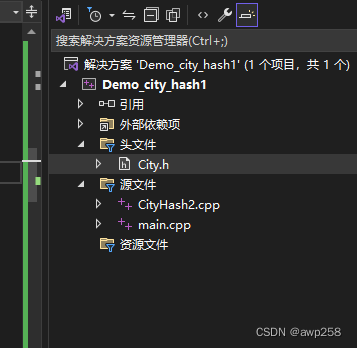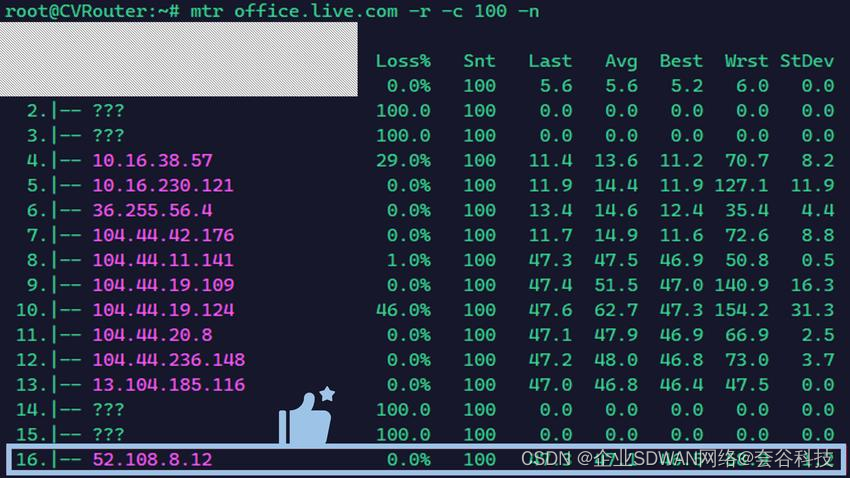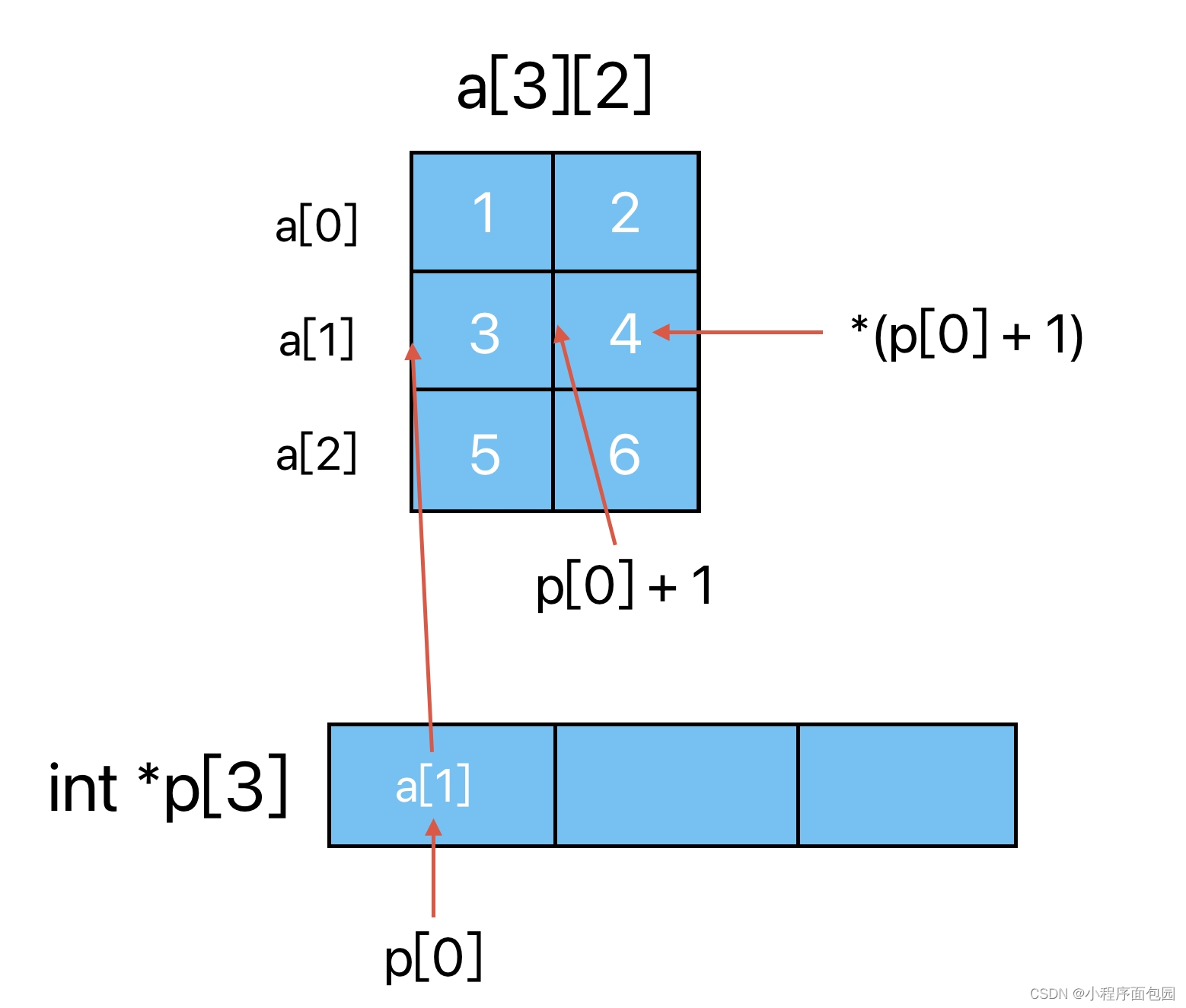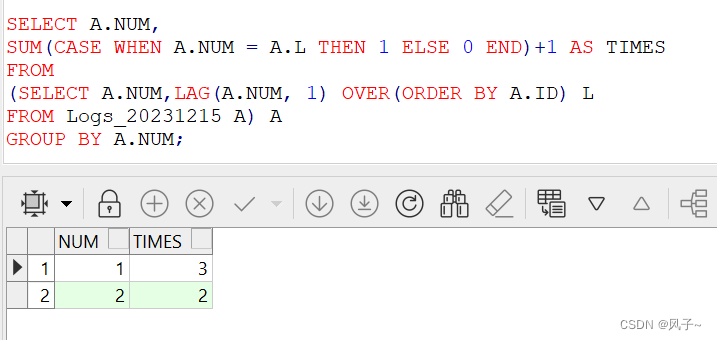最近做项目, 硬件端 需要 用 cityhash 编译一个 动态库 提供给移动端使用,l
记录一下 编译过程
city .cpp
//
// Created by Administrator on 2023/12/12.
//
// Copyright (c) 2011 Google, Inc.
//
// Permission is hereby granted, free of charge, to any person obtaining a copy
// of this software and associated documentation files (the "Software"), to deal
// in the Software without restriction, including without limitation the rights
// to use, copy, modify, merge, publish, distribute, sublicense, and/or sell
// copies of the Software, and to permit persons to whom the Software is
// furnished to do so, subject to the following conditions:
//
// The above copyright notice and this permission notice shall be included in
// all copies or substantial portions of the Software.
//
// THE SOFTWARE IS PROVIDED "AS IS", WITHOUT WARRANTY OF ANY KIND, EXPRESS OR
// IMPLIED, INCLUDING BUT NOT LIMITED TO THE WARRANTIES OF MERCHANTABILITY,
// FITNESS FOR A PARTICULAR PURPOSE AND NONINFRINGEMENT. IN NO EVENT SHALL THE
// AUTHORS OR COPYRIGHT HOLDERS BE LIABLE FOR ANY CLAIM, DAMAGES OR OTHER
// LIABILITY, WHETHER IN AN ACTION OF CONTRACT, TORT OR OTHERWISE, ARISING FROM,
// OUT OF OR IN CONNECTION WITH THE SOFTWARE OR THE USE OR OTHER DEALINGS IN
// THE SOFTWARE.
//
// CityHash, by Geoff Pike and Jyrki Alakuijala
//
// This file provides CityHash64() and related functions.
//
// It's probably possible to create even faster hash functions by
// writing a program that systematically explores some of the space of
// possible hash functions, by using SIMD instructions, or by
// compromising on hash quality.#include "city.h"#include <algorithm>
/*#include <string.h>*/
#include "string.h"using namespace std;static uint64 UNALIGNED_LOAD64(const char *p) {uint64 result;memcpy(&result, p, sizeof(result));return result;
}static uint32 UNALIGNED_LOAD32(const char *p) {uint32 result;memcpy(&result, p, sizeof(result));return result;
}#ifndef __BIG_ENDIAN__#define uint32_in_expected_order(x) (x)
#define uint64_in_expected_order(x) (x)#else#ifdef _MSC_VER
#include <stdlib.h>
#define bswap_32(x) _byteswap_ulong(x)
#define bswap_64(x) _byteswap_uint64(x)#elif defined(__APPLE__)
// Mac OS X / Darwin features
#include <libkern/OSByteOrder.h>
#define bswap_32(x) OSSwapInt32(x)
#define bswap_64(x) OSSwapInt64(x)#else
#include <byteswap.h>
#endif#define uint32_in_expected_order(x) (bswap_32(x))
#define uint64_in_expected_order(x) (bswap_64(x))#endif // __BIG_ENDIAN__#if !defined(LIKELY)
#if defined(__GNUC__) || defined(__INTEL_COMPILER)
#define LIKELY(x) (__builtin_expect(!!(x), 1))
#else
#define LIKELY(x) (x)
#endif
#endifstatic uint64 Fetch64(const char *p) {return uint64_in_expected_order(UNALIGNED_LOAD64(p));
}static uint32 Fetch32(const char *p) {return uint32_in_expected_order(UNALIGNED_LOAD32(p));
}// Some primes between 2^63 and 2^64 for various uses.
static const uint64 k0 = 0xc3a5c85c97cb3127ULL;
static const uint64 k1 = 0xb492b66fbe98f273ULL;
static const uint64 k2 = 0x9ae16a3b2f90404fULL;
static const uint64 k3 = 0xc949d7c7509e6557ULL;// Bitwise right rotate. Normally this will compile to a single
// instruction, especially if the shift is a manifest constant.
static uint64 Rotate(uint64 val, int shift) {// Avoid shifting by 64: doing so yields an undefined result.return shift == 0 ? val : ((val >> shift) | (val << (64 - shift)));
}// Equivalent to Rotate(), but requires the second arg to be non-zero.
// On x86-64, and probably others, it's possible for this to compile
// to a single instruction if both args are already in registers.
static uint64 RotateByAtLeast1(uint64 val, int shift) {return (val >> shift) | (val << (64 - shift));
}static uint64 ShiftMix(uint64 val) {return val ^ (val >> 47);
}static uint64 HashLen16(uint64 u, uint64 v) {return Hash128to64(uint128(u, v));
}static uint64 HashLen0to16(const char *s, size_t len) {if (len > 8) {uint64 a = Fetch64(s);uint64 b = Fetch64(s + len - 8);return HashLen16(a, RotateByAtLeast1(b + len, len)) ^ b;}if (len >= 4) {uint64 a = Fetch32(s);return HashLen16(len + (a << 3), Fetch32(s + len - 4));}if (len > 0) {uint8 a = s[0];uint8 b = s[len >> 1];uint8 c = s[len - 1];uint32 y = static_cast<uint32>(a) + (static_cast<uint32>(b) << 8);uint32 z = len + (static_cast<uint32>(c) << 2);return ShiftMix(y * k2 ^ z * k3) * k2;}return k2;
}// This probably works well for 16-byte strings as well, but it may be overkill
// in that case.
static uint64 HashLen17to32(const char *s, size_t len) {uint64 a = Fetch64(s) * k1;uint64 b = Fetch64(s + 8);uint64 c = Fetch64(s + len - 8) * k2;uint64 d = Fetch64(s + len - 16) * k0;return HashLen16(Rotate(a - b, 43) + Rotate(c, 30) + d,a + Rotate(b ^ k3, 20) - c + len);
}// Return a 16-byte hash for 48 bytes. Quick and dirty.
// Callers do best to use "random-looking" values for a and b.
static pair<uint64, uint64> WeakHashLen32WithSeeds(uint64 w, uint64 x, uint64 y, uint64 z, uint64 a, uint64 b) {a += w;b = Rotate(b + a + z, 21);uint64 c = a;a += x;a += y;b += Rotate(a, 44);return make_pair(a + z, b + c);
}// Return a 16-byte hash for s[0] ... s[31], a, and b. Quick and dirty.
static pair<uint64, uint64> WeakHashLen32WithSeeds(const char* s, uint64 a, uint64 b) {return WeakHashLen32WithSeeds(Fetch64(s),Fetch64(s + 8),Fetch64(s + 16),Fetch64(s + 24),a,b);
}// Return an 8-byte hash for 33 to 64 bytes.
static uint64 HashLen33to64(const char *s, size_t len) {uint64 z = Fetch64(s + 24);uint64 a = Fetch64(s) + (len + Fetch64(s + len - 16)) * k0;uint64 b = Rotate(a + z, 52);uint64 c = Rotate(a, 37);a += Fetch64(s + 8);c += Rotate(a, 7);a += Fetch64(s + 16);uint64 vf = a + z;uint64 vs = b + Rotate(a, 31) + c;a = Fetch64(s + 16) + Fetch64(s + len - 32);z = Fetch64(s + len - 8);b = Rotate(a + z, 52);c = Rotate(a, 37);a += Fetch64(s + len - 24);c += Rotate(a, 7);a += Fetch64(s + len - 16);uint64 wf = a + z;uint64 ws = b + Rotate(a, 31) + c;uint64 r = ShiftMix((vf + ws) * k2 + (wf + vs) * k0);return ShiftMix(r * k0 + vs) * k2;
}uint64 CityHash64(const char *s, size_t len) {if (len <= 32) {if (len <= 16) {return HashLen0to16(s, len);} else {return HashLen17to32(s, len);}} else if (len <= 64) {return HashLen33to64(s, len);}// For strings over 64 bytes we hash the end first, and then as we// loop we keep 56 bytes of state: v, w, x, y, and z.uint64 x = Fetch64(s + len - 40);uint64 y = Fetch64(s + len - 16) + Fetch64(s + len - 56);uint64 z = HashLen16(Fetch64(s + len - 48) + len, Fetch64(s + len - 24));pair<uint64, uint64> v = WeakHashLen32WithSeeds(s + len - 64, len, z);pair<uint64, uint64> w = WeakHashLen32WithSeeds(s + len - 32, y + k1, x);x = x * k1 + Fetch64(s);// Decrease len to the nearest multiple of 64, and operate on 64-byte chunks.len = (len - 1) & ~static_cast<size_t>(63);do {x = Rotate(x + y + v.first + Fetch64(s + 8), 37) * k1;y = Rotate(y + v.second + Fetch64(s + 48), 42) * k1;x ^= w.second;y += v.first + Fetch64(s + 40);z = Rotate(z + w.first, 33) * k1;v = WeakHashLen32WithSeeds(s, v.second * k1, x + w.first);w = WeakHashLen32WithSeeds(s + 32, z + w.second, y + Fetch64(s + 16));std::swap(z, x);s += 64;len -= 64;} while (len != 0);return HashLen16(HashLen16(v.first, w.first) + ShiftMix(y) * k1 + z,HashLen16(v.second, w.second) + x);
}uint64 CityHash64WithSeed(const char *s, size_t len, uint64 seed) {return CityHash64WithSeeds(s, len, k2, seed);
}uint64 CityHash64WithSeeds(const char *s, size_t len,uint64 seed0, uint64 seed1) {return HashLen16(CityHash64(s, len) - seed0, seed1);
}// A subroutine for CityHash128(). Returns a decent 128-bit hash for strings
// of any length representable in signed long. Based on City and Murmur.
static uint128 CityMurmur(const char *s, size_t len, uint128 seed) {uint64 a = Uint128Low64(seed);uint64 b = Uint128High64(seed);uint64 c = 0;uint64 d = 0;signed long l = len - 16;if (l <= 0) { // len <= 16a = ShiftMix(a * k1) * k1;c = b * k1 + HashLen0to16(s, len);d = ShiftMix(a + (len >= 8 ? Fetch64(s) : c));} else { // len > 16c = HashLen16(Fetch64(s + len - 8) + k1, a);d = HashLen16(b + len, c + Fetch64(s + len - 16));a += d;do {a ^= ShiftMix(Fetch64(s) * k1) * k1;a *= k1;b ^= a;c ^= ShiftMix(Fetch64(s + 8) * k1) * k1;c *= k1;d ^= c;s += 16;l -= 16;} while (l > 0);}a = HashLen16(a, c);b = HashLen16(d, b);return uint128(a ^ b, HashLen16(b, a));
}uint128 CityHash128WithSeed(const char *s, size_t len, uint128 seed) {if (len < 128) {return CityMurmur(s, len, seed);}// We expect len >= 128 to be the common case. Keep 56 bytes of state:// v, w, x, y, and z.pair<uint64, uint64> v, w;uint64 x = Uint128Low64(seed);uint64 y = Uint128High64(seed);uint64 z = len * k1;v.first = Rotate(y ^ k1, 49) * k1 + Fetch64(s);v.second = Rotate(v.first, 42) * k1 + Fetch64(s + 8);w.first = Rotate(y + z, 35) * k1 + x;w.second = Rotate(x + Fetch64(s + 88), 53) * k1;// This is the same inner loop as CityHash64(), manually unrolled.do {x = Rotate(x + y + v.first + Fetch64(s + 8), 37) * k1;y = Rotate(y + v.second + Fetch64(s + 48), 42) * k1;x ^= w.second;y += v.first + Fetch64(s + 40);z = Rotate(z + w.first, 33) * k1;v = WeakHashLen32WithSeeds(s, v.second * k1, x + w.first);w = WeakHashLen32WithSeeds(s + 32, z + w.second, y + Fetch64(s + 16));std::swap(z, x);s += 64;x = Rotate(x + y + v.first + Fetch64(s + 8), 37) * k1;y = Rotate(y + v.second + Fetch64(s + 48), 42) * k1;x ^= w.second;y += v.first + Fetch64(s + 40);z = Rotate(z + w.first, 33) * k1;v = WeakHashLen32WithSeeds(s, v.second * k1, x + w.first);w = WeakHashLen32WithSeeds(s + 32, z + w.second, y + Fetch64(s + 16));std::swap(z, x);s += 64;len -= 128;} while (LIKELY(len >= 128));x += Rotate(v.first + z, 49) * k0;z += Rotate(w.first, 37) * k0;// If 0 < len < 128, hash up to 4 chunks of 32 bytes each from the end of s.for (size_t tail_done = 0; tail_done < len; ) {tail_done += 32;y = Rotate(x + y, 42) * k0 + v.second;w.first += Fetch64(s + len - tail_done + 16);x = x * k0 + w.first;z += w.second + Fetch64(s + len - tail_done);w.second += v.first;v = WeakHashLen32WithSeeds(s + len - tail_done, v.first + z, v.second);}// At this point our 56 bytes of state should contain more than// enough information for a strong 128-bit hash. We use two// different 56-byte-to-8-byte hashes to get a 16-byte final result.x = HashLen16(x, v.first);y = HashLen16(y + z, w.first);return uint128(HashLen16(x + v.second, w.second) + y,HashLen16(x + w.second, y + v.second));
}uint128 CityHash128(const char *s, size_t len) {if (len >= 16) {return CityHash128WithSeed(s + 16,len - 16,uint128(Fetch64(s) ^ k3,Fetch64(s + 8)));} else if (len >= 8) {return CityHash128WithSeed(NULL,0,uint128(Fetch64(s) ^ (len * k0),Fetch64(s + len - 8) ^ k1));} else {return CityHash128WithSeed(s, len, uint128(k0, k1));}
}#if defined(__SSE4_2__) && defined(__x86_64__)
#include <nmmintrin.h>// Requires len >= 240.
static void CityHashCrc256Long(const char *s, size_t len,uint32 seed, uint64 *result) {uint64 a = Fetch64(s + 56) + k0;uint64 b = Fetch64(s + 96) + k0;uint64 c = result[0] = HashLen16(b, len);uint64 d = result[1] = Fetch64(s + 120) * k0 + len;uint64 e = Fetch64(s + 184) + seed;uint64 f = seed;uint64 g = 0;uint64 h = 0;uint64 i = 0;uint64 j = 0;uint64 t = c + d;// 240 bytes of input per iter.size_t iters = len / 240;len -= iters * 240;do {
#define CHUNK(multiplier, z) \{ \uint64 old_a = a; \a = Rotate(b, 41 ^ z) * multiplier + Fetch64(s); \b = Rotate(c, 27 ^ z) * multiplier + Fetch64(s + 8); \c = Rotate(d, 41 ^ z) * multiplier + Fetch64(s + 16); \d = Rotate(e, 33 ^ z) * multiplier + Fetch64(s + 24); \e = Rotate(t, 25 ^ z) * multiplier + Fetch64(s + 32); \t = old_a; \} \f = _mm_crc32_u64(f, a); \g = _mm_crc32_u64(g, b); \h = _mm_crc32_u64(h, c); \i = _mm_crc32_u64(i, d); \j = _mm_crc32_u64(j, e); \s += 40CHUNK(1, 1); CHUNK(k0, 0);CHUNK(1, 1); CHUNK(k0, 0);CHUNK(1, 1); CHUNK(k0, 0);} while (--iters > 0);while (len >= 40) {CHUNK(k0, 0);len -= 40;}if (len > 0) {s = s + len - 40;CHUNK(k0, 0);}j += i << 32;a = HashLen16(a, j);h += g << 32;b += h;c = HashLen16(c, f) + i;d = HashLen16(d, e + result[0]);j += e;i += HashLen16(h, t);e = HashLen16(a, d) + j;f = HashLen16(b, c) + a;g = HashLen16(j, i) + c;result[0] = e + f + g + h;a = ShiftMix((a + g) * k0) * k0 + b;result[1] += a + result[0];a = ShiftMix(a * k0) * k0 + c;result[2] = a + result[1];a = ShiftMix((a + e) * k0) * k0;result[3] = a + result[2];
}// Requires len < 240.
static void CityHashCrc256Short(const char *s, size_t len, uint64 *result) {char buf[240];memcpy(buf, s, len);memset(buf + len, 0, 240 - len);CityHashCrc256Long(buf, 240, ~static_cast<uint32>(len), result);
}void CityHashCrc256(const char *s, size_t len, uint64 *result) {if (LIKELY(len >= 240)) {CityHashCrc256Long(s, len, 0, result);} else {CityHashCrc256Short(s, len, result);}
}uint128 CityHashCrc128WithSeed(const char *s, size_t len, uint128 seed) {if (len <= 900) {return CityHash128WithSeed(s, len, seed);} else {uint64 result[4];CityHashCrc256(s, len, result);uint64 u = Uint128High64(seed) + result[0];uint64 v = Uint128Low64(seed) + result[1];return uint128(HashLen16(u, v + result[2]),HashLen16(Rotate(v, 32), u * k0 + result[3]));}
}}#endifcity.h 头文件
// Created by Administrator on 2023/12/12.
//// Copyright (c) 2011 Google, Inc.
//
// Permission is hereby granted, free of charge, to any person obtaining a copy
// of this software and associated documentation files (the "Software"), to deal
// in the Software without restriction, including without limitation the rights
// to use, copy, modify, merge, publish, distribute, sublicense, and/or sell
// copies of the Software, and to permit persons to whom the Software is
// furnished to do so, subject to the following conditions:
//
// The above copyright notice and this permission notice shall be included in
// all copies or substantial portions of the Software.
//
// THE SOFTWARE IS PROVIDED "AS IS", WITHOUT WARRANTY OF ANY KIND, EXPRESS OR
// IMPLIED, INCLUDING BUT NOT LIMITED TO THE WARRANTIES OF MERCHANTABILITY,
// FITNESS FOR A PARTICULAR PURPOSE AND NONINFRINGEMENT. IN NO EVENT SHALL THE
// AUTHORS OR COPYRIGHT HOLDERS BE LIABLE FOR ANY CLAIM, DAMAGES OR OTHER
// LIABILITY, WHETHER IN AN ACTION OF CONTRACT, TORT OR OTHERWISE, ARISING FROM,
// OUT OF OR IN CONNECTION WITH THE SOFTWARE OR THE USE OR OTHER DEALINGS IN
// THE SOFTWARE.
//
// CityHash, by Geoff Pike and Jyrki Alakuijala
//
// This file provides a few functions for hashing strings. On x86-64
// hardware in 2011, CityHash64() is faster than other high-quality
// hash functions, such as Murmur. This is largely due to higher
// instruction-level parallelism. CityHash64() and CityHash128() also perform
// well on hash-quality tests.
//
// CityHash128() is optimized for relatively long strings and returns
// a 128-bit hash. For strings more than about 2000 bytes it can be
// faster than CityHash64().
//
// Functions in the CityHash family are not suitable for cryptography.
//
// WARNING: This code has not been tested on big-endian platforms!
// It is known to work well on little-endian platforms that have a small penalty
// for unaligned reads, such as current Intel and AMD moderate-to-high-end CPUs.
//
// By the way, for some hash functions, given strings a and b, the hash
// of a+b is easily derived from the hashes of a and b. This property
// doesn't hold for any hash functions in this file.#ifndef CITY_HASH_H_
#define CITY_HASH_H_#include <stdlib.h> // for size_t.
#include <utility>// Microsoft Visual Studio may not have stdint.h.
#if defined(_MSC_VER) && (_MSC_VER < 1600)
typedef unsigned char uint8_t;
typedef unsigned int uint32_t;
typedef unsigned __int64 uint64_t;
#else // defined(_MSC_VER)
#include <stdint.h>
#endif // !defined(_MSC_VER)typedef uint8_t uint8;
typedef uint32_t uint32;
typedef uint64_t uint64;
typedef std::pair<uint64, uint64> uint128;inline uint64 Uint128Low64(const uint128& x) { return x.first; }
inline uint64 Uint128High64(const uint128& x) { return x.second; }// Hash function for a byte array.
uint64 CityHash64(const char *buf, size_t len);// Hash function for a byte array. For convenience, a 64-bit seed is also
// hashed into the result.
uint64 CityHash64WithSeed(const char *buf, size_t len, uint64 seed);// Hash function for a byte array. For convenience, two seeds are also
// hashed into the result.
uint64 CityHash64WithSeeds(const char *buf, size_t len,uint64 seed0, uint64 seed1);// Hash function for a byte array.
uint128 CityHash128(const char *s, size_t len);// Hash function for a byte array. For convenience, a 128-bit seed is also
// hashed into the result.
uint128 CityHash128WithSeed(const char *s, size_t len, uint128 seed);// Hash 128 input bits down to 64 bits of output.
// This is intended to be a reasonably good hash function.
inline uint64 Hash128to64(const uint128& x) {// Murmur-inspired hashing.const uint64 kMul = 0x9ddfea08eb382d69ULL;uint64 a = (Uint128Low64(x) ^ Uint128High64(x)) * kMul;a ^= (a >> 47);uint64 b = (Uint128High64(x) ^ a) * kMul;b ^= (b >> 47);b *= kMul;return b;
}// Conditionally include declarations for versions of City that require SSE4.2
// instructions to be available.
#if defined(__SSE4_2__) && defined(__x86_64__)// Hash function for a byte array.
uint128 CityHashCrc128(const char *s, size_t len);// Hash function for a byte array. For convenience, a 128-bit seed is also
// hashed into the result.
uint128 CityHashCrc128WithSeed(const char *s, size_t len, uint128 seed);// Hash function for a byte array. Sets result[0] ... result[3].
void CityHashCrc256(const char *s, size_t len, uint64 *result);#endif // __SSE4_2__#endif // CITY_HASH_H_在这里插入代码片
我在vs 编译一下

 编译通过
编译通过
直接移植到Android 上
 调用
调用
byte[] byteArray ={(byte) 0x8E, (byte) 0xE8,(byte)0x6D, (byte) 0xD6};String result1 = googleCity.getCityCode(byteArray);tv.setText(result1+"");在这里插入代码片
```搞定 需要代码的小伙伴 点击这里:


















